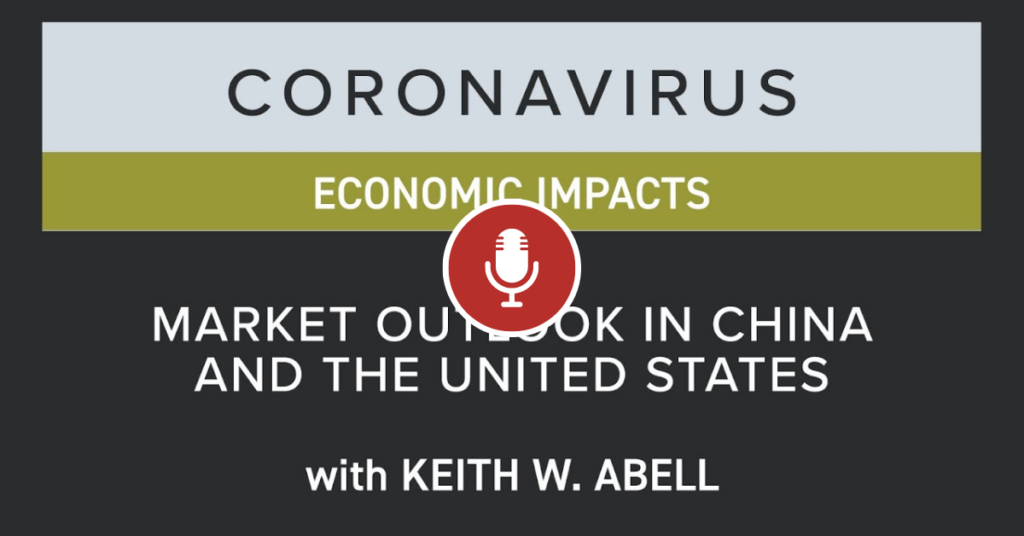This episode is part of the National Committee’s Coronavirus Impact Series.
In the wake of the Dow Jones’ dramatic correction at the end of February and continued market instability, Keith W. Abell examines how the coronavirus outbreak is affecting general market outlook and sentiment among investors in the United States and China.
Speaker Bio
Keith W. Abell is founder of NextWave Investment Strategies, which has partnered with leading Asian financial institutions to utilize advanced quantitative methodologies to invest in Chinese and Korean financial markets. He also is co-founder of Sungate Properties, which has partnered with private Chinese investors to acquire stakes in trophy NYC office properties. He is a member of the Board of Directors of FGL Holdings and Graf Industrial Corp., the Advisory Board of WaveFront Global Asset Management, and the Council on Foreign Relations. He serves as treasurer on the National Committee on U.S.-China Relations’ board of directors.
Transcript
How is the coronavirus affecting investment in the U.S. and China?
Keith W. Abell: Coronavirus outbreak began concurrent with the Chinese New Year. That’s a time when not much business is done at all, so it was already scheduled to slow down investment within China and investment from outside of China into China during that period. It’s only been a couple of weeks since then, and in a lot of companies people haven’t gone back to work yet. Schools are still closed, and this is a period of time when people are just beginning to get started again. It’s just simply too soon to tell what sort of long-term implications this is going to have because we’re still very much in the short term.
Could there be long term implications for China’s economy?
Abell: The dampening effect will last as long as the Coronavirus lasts. If it lasts too long, if it looks like sending people back to work was a mistake, if global trade slows down, if people aren’t traveling for business, it could have real effects on the economy. Right now, there’s the possibility that the real effects are relatively modest and not long-lasting and that most of the problem is sentiment. But eventually, these become real problems and they compound. If there is no cure and it goes on too long, then the dangers to the real economy should not be underestimated.
How has Beijing’s response to the virus influenced sentiment among firms and investors?
Abell: It doesn’t seem that the Chinese stock markets or the Hong Kong stock market have panicked in reaction to the way the Chinese government has handled the Coronavirus outbreak. The Chinese have been widely criticized for their poor transparency in the early stages of this, and praised by some for their efficiency in mobilizing themselves to stop its spread. Obviously, nobody really knows enough about the virus, or how it’s spread, or what its implications are going to be, and that kind of uncertainty spooks investors. But interestingly, it spooked American investors far more than it has investors in Asia. Neither the Hong Kong stock market nor the Shanghai and Shenzhen stock markets have experienced the kind of dramatic drop that the Dow Jones has.
